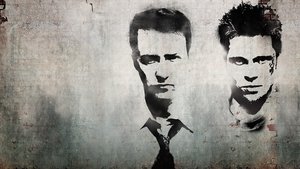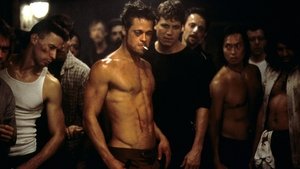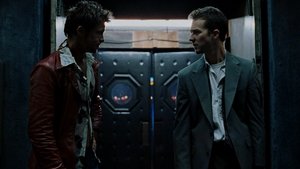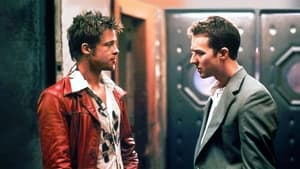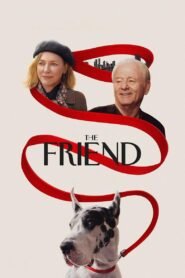
Video Sources 193 Views Report Error

Synopsis
Fight Club, directed by David Fincher and based on Chuck Palahniuk’s novel, is a provocative and thought-provoking film that delves into themes of identity, consumerism, and rebellion. The story follows an unnamed insomniac (played by Edward Norton) who forms an unlikely friendship with Tyler Durden (played by Brad Pitt), a charismatic soap salesman. Together, they create underground fight clubs where men channel their primal aggression into brutal, bare-knuckle brawls.
What begins as a form of therapy quickly spirals out of control, evolving into a chaotic movement that challenges societal norms and leads to shocking consequences. With its gritty visuals, sharp dialogue, and unforgettable twist, Fight Club has become a cult classic that continues to spark debate and analysis.
1. About Fight Club
Released in 1999, Fight Club is a dark satire that critiques modern consumer culture and explores the search for meaning in a materialistic world. The film’s unconventional narrative, combined with its raw and visceral style, has made it a standout in modern cinema.
At its core, Fight Club is a story about identity and the struggle to break free from societal expectations. The film’s exploration of masculinity, mental health, and rebellion resonates deeply with audiences, making it a timeless piece of art.
2. Why Fight Club Stands Out
Key Highlights:
- Unforgettable Performances: Edward Norton and Brad Pitt deliver career-defining roles.
- Provocative Themes: The film challenges viewers to question societal norms and their own lives.
- Iconic Twist: The shocking revelation redefines the entire story.
- Stylistic Direction: David Fincher’s gritty and innovative filmmaking sets the tone.
3. Plot Summary
The Insomniac
The unnamed protagonist (Edward Norton) is a disillusioned office worker suffering from chronic insomnia. His life is monotonous and unfulfilled, defined by consumerism and a lack of purpose.
Tyler Durden
After meeting Tyler Durden (Brad Pitt), the protagonist’s life takes a dramatic turn. Tyler is everything the protagonist is not—charismatic, fearless, and rebellious. Together, they create fight clubs, where men gather to fight and release their pent-up aggression.
The Spiral into Chaos
What begins as a form of therapy evolves into Project Mayhem, a radical movement aimed at dismantling societal structures. As the protagonist becomes more entangled in Tyler’s plans, he begins to uncover shocking truths about himself and Tyler’s true nature.
Original title Fight Club
IMDb Rating 8.8 2,439,238 votes
TMDb Rating 8.438 29,976 votes
Director
Director
Cast
Narrator
Tyler Durden
Marla Singer
Robert Paulson
Angel Face
Richard Chesler (Regional Manager)
The Mechanic
Ricky
Intern at Hospital
Thomas at Remaining Men Together



